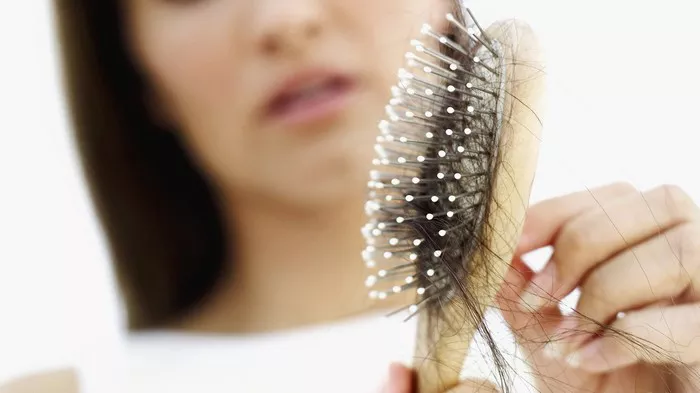Hair loss is a common concern that can be influenced by various factors, including nutritional deficiencies. Vitamin D3, known for its role in bone health and immune system function, has recently been the subject of discussions regarding its potential impact on hair health. In this article, we’ll explore the relationship between Vitamin D3 and hair loss, examining the scientific evidence and offering insights into maintaining a balanced approach to hair care.
Understanding Vitamin D3
Vitamin D3, also known as cholecalciferol, is a crucial fat-soluble vitamin that the body produces when exposed to sunlight. It plays a vital role in calcium absorption, bone health, and immune system function. While Vitamin D3 is essential for overall well-being, the question arises: can its deficiency contribute to hair loss?
The Role of Vitamin D3 in Hair Health
Vitamin D3 receptors are present in various cells, including those in the hair follicles. Some studies suggest that adequate levels of Vitamin D3 may play a role in promoting hair follicle health and supporting hair growth. It is thought to influence the proliferation and differentiation of cells within the hair follicles, contributing to the overall hair growth cycle.
Scientific Evidence on Vitamin D3 and Hair Loss
While there is some scientific evidence suggesting a link between Vitamin D3 deficiency and hair loss, the research is still in its early stages, and more studies are needed to establish a definitive connection.
A study published in the International Journal of Trichology in 2016 examined the association between Vitamin D levels and female pattern hair loss. The researchers found that women with hair loss tended to have lower levels of Vitamin D compared to those without hair loss. However, this study did not establish a direct cause-and-effect relationship.
Another study published in the Journal of Clinical Endocrinology and Metabolism in 2012 investigated the impact of Vitamin D on hair follicle cycling in mice. The researchers discovered that Vitamin D receptors were present in the cells of hair follicles and that Vitamin D influenced the hair growth cycle. However, extrapolating these findings to humans requires further investigation.
Factors Contributing to Vitamin D3 Deficiency
Several factors can contribute to Vitamin D3 deficiency, including insufficient sun exposure, inadequate dietary intake, certain medical conditions, and age. People with limited sun exposure, those with darker skin tones, and individuals living in regions with less sunlight may be at a higher risk of Vitamin D3 deficiency.
Balancing Vitamin D3 Intake for Hair Health
While maintaining adequate Vitamin D3 levels is essential for overall health, it’s crucial to approach supplementation with caution. Excessive intake of Vitamin D3 can lead to toxicity, resulting in adverse effects such as nausea, vomiting, weakness, and, ironically, hair loss.
Consulting with a healthcare professional to assess your Vitamin D3 levels and determine the appropriate supplementation, if necessary, is recommended. They can conduct blood tests to measure your Vitamin D levels and provide personalized advice based on your individual health profile.
Incorporating Vitamin D3 into a Hair-Care Routine
For those looking to support their hair health, incorporating Vitamin D3 into a comprehensive hair-care routine can be beneficial. Here are some tips:
Maintain a Balanced Diet: Ensure your diet includes foods rich in Vitamin D, such as fatty fish, fortified dairy products, eggs, and mushrooms. A well-balanced diet contributes to overall health, including the health of your hair.
Sun Exposure: Allow for moderate sun exposure, which is a natural way for the body to produce Vitamin D3. However, it’s essential to practice sun safety and avoid prolonged exposure without protection.
Supplementation with Caution: If advised by a healthcare professional, consider Vitamin D3 supplementation. It’s crucial to follow the recommended dosage to avoid potential side effects.
Overall Hair-Care Practices: Maintain a healthy hair-care routine that includes gentle washing, conditioning, and protecting your hair from harsh environmental factors. Good hair care contributes to the overall health and appearance of your hair.
See Also: The Impact of Flat Ironing on Hair Health: A Quick Guide
Conclusion
In conclusion, the relationship between Vitamin D3 and hair loss is an area of interest in scientific research. While there is some evidence suggesting a link between Vitamin D3 deficiency and hair loss, further studies are needed to establish a clear cause-and-effect relationship. Maintaining adequate Vitamin D3 levels through a balanced diet, moderate sun exposure, and cautious supplementation, if necessary, is essential for overall health. As with any health concern, consulting with a healthcare professional is advisable to receive personalized advice based on individual circumstances. Ultimately, a holistic approach to health, including proper nutrition and care, is crucial for promoting overall well-being, including the health of your hair.


